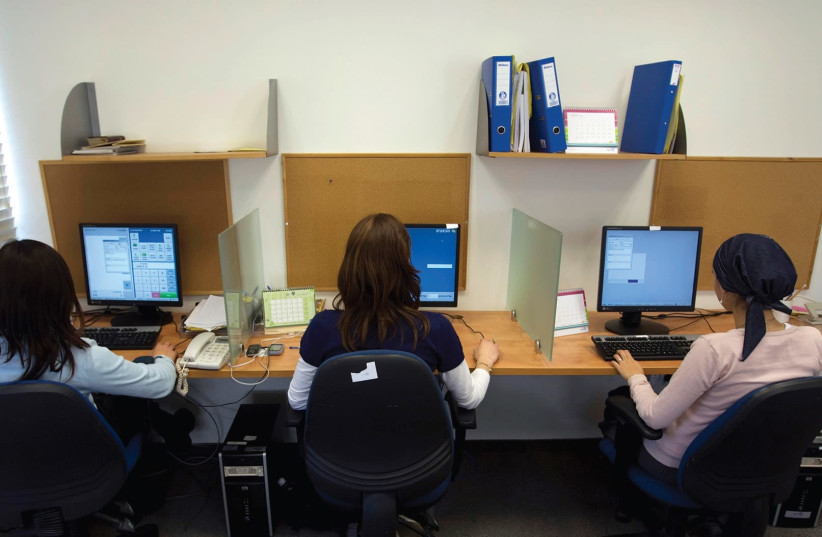Although there has been considerable improvement with regard to equality and diversity in the workforce, Israel still has a long way to go, according to a survey presented on Sunday to President Isaac Herzog.
Insofar as diversity is concerned, fear and suspicion of the other are among the key factors in the low employment figures of Arabs, haredim, (ultra-Orthodox) and members of Israel’s Ethiopian community (whether Jewish or otherwise).
This fear and suspicion ride across the board in that when members of these different sectors of the population are in managerial positions, they are reluctant to employ anyone from outside of their own tribes; and when seeking employment, some haredim do not want to work together with women or with secular people.
Herzog, as a former minister of Welfare and Social Services, is familiar with the subject of equality and diversity but did not speak on this occasion. Instead, it was his wife, Michal, who in illustrating the importance of equality, said that over the years, there were many times when she was part of a professional group, she was the only woman in the room.
Relating to Arabs, she observed that regardless of the nature of employment, they are gradually getting closer to earning the salaries earned by Jews. Women, however, whether Arab or Jewish, are way behind when it comes to earning equal pay for equal work.

The survey was a composite of data collected by the Ministry of Economy, the New Histadrut, and the Equal Employment Opportunity Commission, whose key representatives signed a pledge for the advancement of diversity and equality in the workforce, not only for the betterment of social integration and the realization of potential, but also to enable the economy to flourish at a greater speed and on a grander scale.
The slogan of the project is “It pays to be equal,” though the Hebrew version has a better word play: “Shaveh lehiot shaveh.”
Economy Minister Orna Barbivay, former head of the IDF Manpower Directorate, stressed the need to give people the opportunity not only to realize but to demonstrate their potential. Born in Ramle, which she called “a peripheral town,” her own potential was realized in the army. But for that, she said, she would not be where she is today. When Ethiopian soldiers first came to the IDF, they came with a poor self-image, but their leadership potential was recognized, and many became fine officers.
“We have to do more than talk about equality and diversity,” Barbivay insisted. “We have to make it possible. “
Referring to the natural growth of the different sectors in the population, Barbivay said, “Demographically, we can’t afford to deny anyone the opportunity to reach their potential.”
A panel discussion included Ayat Rahal, head of the Diversity in Employment Division of the Civil Servants Bureau; Guy Simchi, who is part of the bureau of the chairman of the Histadrut labor federation and responsible for the employment of people with disabilities; Dr. Mohamed Zahalka, who is vice president of the global company Alfa Gate, a large manufacturer of dental implants headquartered in Kafr Kara, and Ruthie Margalit, a haredi CEO of a hi-tech company that employs some 250 haredim.
Asked about challenges faced by the different communities which they represented, Zahalka said that Arabs should be regarded as an asset and not as a liability. His company also employs Jews, but many Jews are afraid to come to an Arab town for an employment interview, he said.
Simchi said that people should be judged on their qualifications and not on their religion, race, gender, age or disability.
Rahal said that diversity alone is not enough. There has to be a sense of partnership and cooperation, and Margalit said that the toughest part was crossing the Rubicon, but once that happens and people of diverse backgrounds learn to accept each other, the rest is easy.
